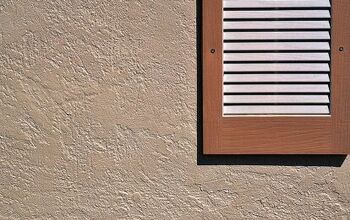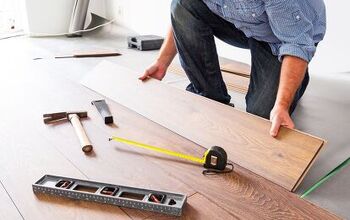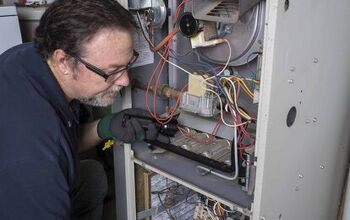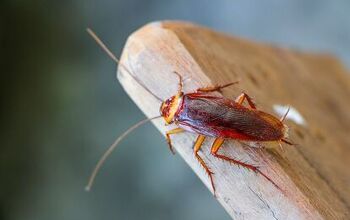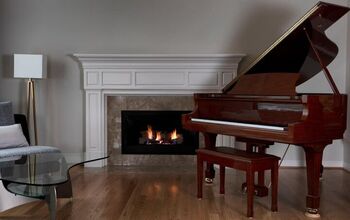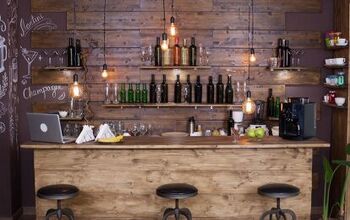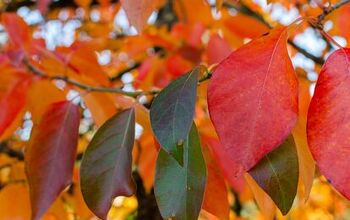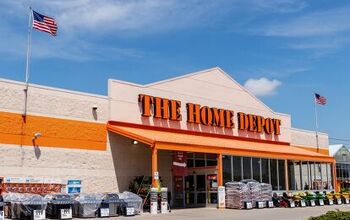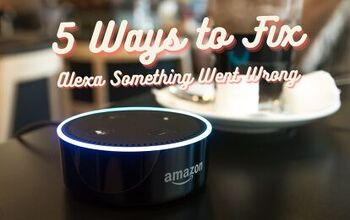Does Home Depot Recycle Light Bulbs? (Find Out Now!)

Light bulbs last longer now than ever before, but they do have limited lifetimes. Most light bulbs can be recycled, and retailers offer special recycling programs for light bulbs. So, does Home Depot recycle light bulbs?
All Home Depot locations accept CFL light bulbs for recycling. Some Home Depot stores accept LED bulbs, so check with your local store. Home Depot doesn’t accept fluorescent, incandescent, or Halogen light bulbs for recycling. Take fluorescent, incandescent, and Halogen bulbs to your local recycling center or hazardous waste facility. Lowe’s also accepts CFL light bulbs for recycling.
Let’s take a closer look at the different types of light bulbs that you may use in your home, as well as the Home Depot light bulb recycling program.
What are the Most Common Types of Household Light Bulbs?
There are 5 types of light bulbs that are used in homes – fluorescent, LED, incandescent, CFL, and Halogen bulbs. We will also discuss the recycling and disposal requirements for each type of bulb.
Fluorescent Light Bulbs
Fluorescent bulbs are easy to spot in your home. They are tubes that flood a space with light. The bulbs snap into an aluminum bracket that is mounted to the ceiling. Fluorescent bulbs are most often used in kitchens, garages, sheds, and workshops.
Fluorescent bulbs contain mercury, so they should not be put in the landfill.
LED Light Bulbs
LED is one of the newest technologies in the lighting industry. The bulbs were introduced as a way to reduce energy consumption. An LED bulb uses 75% less energy than traditional incandescent bulbs. You may be familiar with the glowing filament that is used for an incandescent light bulb.
In an LED bulb, the filament has been replaced by a diode. The light tends to be more direct and brighter than incandescent bulbs. Some LED bulbs need a few minutes to warm up before you see the full light output.
LED bulbs should be recycled because they contain small amounts of heavy metals. The metals should not be put in a landfill because they don’t break down. Instead, they seep into the soil and water.
Incandescent Light Bulbs
Incandescent light bulbs are the oldest type of bulb. They were invented by Thomas Edison in 1879. Before this, the British were working with ways to produce light with arcs of electricity. Edison took this concept and applied it to a bulb with a filament inside the glass. When electricity is fed into the filament, it glows with light.
Incandescent bulbs can be used for practically every application, from lamps and track lighting to spotlights. In 2012, the federal government introduced the Energy Independence and Security Act. Part of the act required that 60-watt incandescent bulbs be phased out. This is when CFL bulbs and other technologies were introduced, but you can still find incandescent light bulbs for your home.
Incandescent bulbs aren’t made with any hazardous materials, so it’s acceptable to put them in the trash. Recycling the bulbs, though, reduces waste in the landfills.
CFL Light Bulbs
Compact fluorescent light bulbs were introduced as an alternative to incandescent light bulbs. They have a spiral glass design. When electricity is fed into the bulb, it reacts with gases inside the bulb to produce light.
These types of bulbs are designed to be used in any part of the house, including lamps, lighting fixture, spotlights, and work lights.
CFL light bulbs are less popular than LED and Halogen bulbs. The light has an unnatural appearance, and the bulbs contain mercury gas. If you break the glass, the mercury gas escapes into the air.
CFL bulbs should not be thrown in the trash. Despite the presence of mercury gas, CFL bulbs require no special handling for recycling. You don’t need to take the bulbs to a hazardous waste facility.
Halogen Light Bulbs
Halogen light bulbs are similar to traditional incandescent bulbs. Both bulbs contain a tungsten filament. The key difference is that Halogen bulbs also have a small amount of inert gas inside the bulb. The gas increases the amount of light put out by the bulb, as well as the lifetime of the bulb.
Halogen bulbs can be used in the same way as incandescent, CFL, and LED bulbs. The bulbs are also used for vehicle headlights due to the power and purity of the light.
Although the gas inside a Halogen light bulb is inert, the bulbs should not be thrown in the trash. The bulbs are not easily recycled, though. Check with your local recycling center to find out how to best dispose of the bulbs.
Does Home Depot Recycle Light Bulbs?
Home Depot does recycle some types of light bulbs. Others need to be taken to a local recycling center.
All Home Depot stores accept CFL light bulbs for recycling. Some Home Depot locations accept LED light bulbs for recycling. Check with your local store. If they don’t accept LED bulbs, contact your local recycling center to find out how to dispose of LED bulbs.
Home Depot doesn’t accept fluorescent, incandescent, or Halogen light bulbs for recycling. Check with your local recycling center or hazardous waste disposal center to find out how to dispose of the bulbs.
Lowe’s Recycles Light Bulbs
If you don’t live near a Home Depot, an alternative is the Lowe’s recycling program. Stores accept CFL bulbs, plastic bags, cell phones, rechargeable batteries, and other items. Check with your local Lowe’s to learn more.
Related Questions
Does Home Depot recycle batteries?
Yes. The retailer has a Call2Recycle® program that accepts rechargeable batteries that power cordless tools, laptops, remote controls, portable electronics, and more. The program also accepts old cell phones.
How much does it cost to recycle light bulbs at Home Depot?
Home Depot’s recycling program is free. Check to make sure that your local store accepts the items for recycling. Drop them off at one of the recycling kiosks at the store.
Conclusion
Instead of tossing out your old light bulbs, recycle them. Home Depot runs an excellent light bulb recycling program, as do other retailers. You can also work with your local recycling center to keep those bulbs out of the landfills.

Jennifer L. Eggerton loves being hands-on, whether it's with a home DIY project, making repairs, re-decorating a room, or keeping life organized. She enjoys helping people by sharing her knowledge, insights, and experiences, as well as her lessons learned. In addition to her work as a writer, Jennifer is a Jeep® overlander, self-published author, and nature photographer who loves being outdoors.
More by Jennifer Eggerton



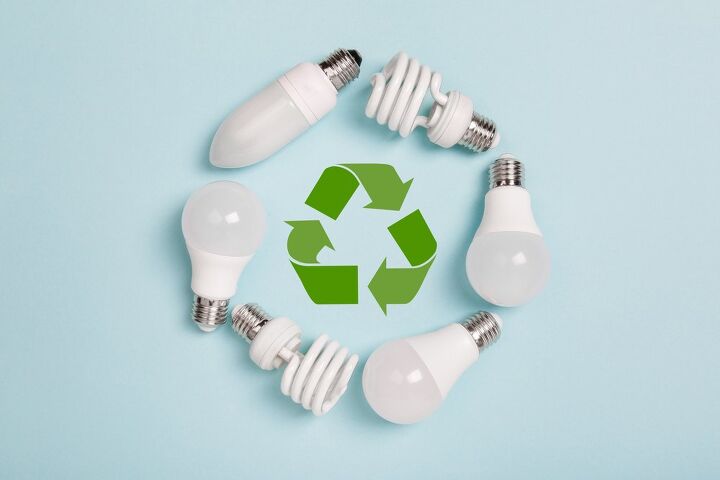






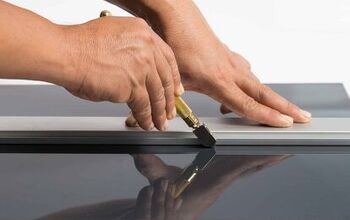
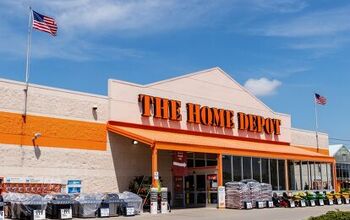
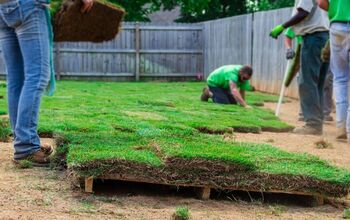

![How Much Weight Can a 4×4 Support Horizontally? [It Depends!]](https://cdn-fastly.upgradedhome.com/media/2023/07/31/9070333/how-much-weight-can-a-44-support-horizontally-it-depends.jpg?size=350x220)



